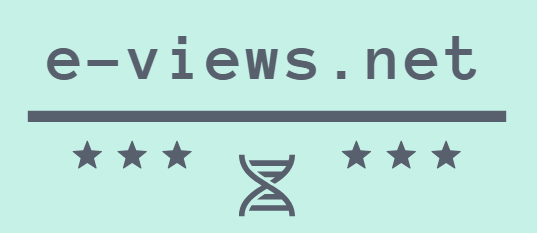When you're looking to enhance your backlink profile for SEO, focusing on quality over quantity is crucial. High-authority domains can significantly boost your site's credibility and search rankings. You might consider guest blogging on reputable sites within your niche or crafting original content that naturally attracts links. Social media and influencer outreach can also extend your reach to new audiences. But that's not all—regularly reviewing your backlink profile and addressing any harmful links are essential steps. Curious about how these strategies intertwine to elevate your SEO game? There's more to explore in this multifaceted approach.
Acquire Quality Backlinks
Acquiring quality backlinks is a critical component in elevating your website's SEO performance. When you focus on obtaining links from authoritative sites, you enhance your site's credibility and visibility in search engine rankings.
To strategically build a robust backlink profile, start by identifying high-domain authority websites relevant to your niche. Tools like Ahrefs or Moz can assist in analyzing a site's authority and relevance.
Next, create compelling, original content that naturally attracts backlinks. Content that provides value, such as in-depth guides, research studies, or infographics, tends to be shared more frequently, encouraging other sites to link back to yours.
Engage in proactive outreach by contacting site owners or editors with personalized pitches that highlight the mutual benefit of linking to your content.
Monitor your backlink profile regularly using tools like Google Search Console to ensure the quality of your links remains high and to disavow any low-quality or spammy links that could harm your SEO.
Utilize Guest Blogging
Building a strong backlink profile extends beyond merely acquiring quality backlinks; employing a strategic guest blogging approach can also play a pivotal role. By contributing content to reputable sites in your niche, you gain exposure and authoritative backlinks that bolster your SEO efforts.
Start by identifying high-authority blogs with audiences that align with your own. Use tools like Moz or Ahrefs to assess domain authority and ensure the site's credibility.
Crafting content that's both relevant and insightful is crucial. Your guest post should provide value, showcasing your expertise without overtly promoting your brand. This earns you trust, increasing the likelihood of your content being shared and linked back to.
When negotiating guest blogging opportunities, insist on a do-follow backlink within your author bio or content body, as no-follow links don't pass SEO value.
Track the performance of your guest posts using UTM parameters and analytics tools. This data helps refine your approach, enhancing future guest blogging strategies.
Engage with readers in the comments to build relationships and encourage engagement. Remember, guest blogging isn't just about links; it's about building authority and expanding your network within your industry.
Leverage Social Media

Social media platforms offer a dynamic landscape for amplifying your backlink strategy and enhancing your SEO profile. By actively engaging on these platforms, you can effectively distribute content, drive traffic, and boost your site's authority.
Start by identifying the most relevant social media channels for your niche. Whether it's LinkedIn for B2B or Instagram for lifestyle brands, target platforms where your audience is most active.
Craft shareable content that encourages interaction and sharing. Use captivating visuals and compelling headlines to increase your content's reach. Each share is an opportunity for your content to earn backlinks as it reaches a wider audience.
To strategically leverage social media, consider the following:
- Optimize Profiles: Ensure your social media profiles link back to your website, providing a straightforward path for users to access your site.
- Engage with Communities: Join relevant groups and forums to share your expertise and link to your content when appropriate.
- Utilize Hashtags: Implement popular, relevant hashtags to extend your content's visibility beyond your immediate followers.
Engage in Influencer Outreach
While social media platforms play a pivotal role in expanding your content's reach, collaborating with influencers can significantly enhance your backlink strategy. By identifying influencers within your niche, you can tap into their established credibility and audience, fostering high-quality backlinks to your site.
Start by researching influencers who align with your brand's values and have a substantial following. Use tools like BuzzSumo or Followerwonk to analyze their engagement metrics and relevance to your industry.
Craft a strategic outreach plan. Personalize your communication to demonstrate genuine interest in their work. Offer value in exchange, whether through exclusive content or mutual promotions. This tailored approach increases the likelihood of them sharing your content, thereby generating valuable backlinks.
Track the effectiveness of your influencer campaigns using tools like Google Analytics. Monitor referral traffic and analyze the quality of backlinks gained. Ensure the influencers' audiences are engaging with your content, as this signals relevance and authority to search engines.
Monitor and Disavow Bad Links

In addition to enhancing your backlink profile, it's crucial to monitor and disavow bad links to maintain your site's SEO health. Bad links can originate from spammy, irrelevant, or low-quality sites, undermining your search engine rankings.
Regularly auditing your backlink profile helps identify harmful links. Use tools like Google Search Console or specialized SEO software to detect these threats. Once identified, you can compile them into a disavow file and submit it to Google, effectively telling search engines to ignore these links.
To strategically manage this process, consider the following steps:
- Automate Monitoring: Utilize SEO tools that automatically track your backlinks, providing alerts for any suspicious activity or new backlinks from questionable sources.
- Evaluate Link Quality: Assess each backlink's source and relevance to your niche. Low domain authority or unrelated content can degrade your site's authority.
- Compile and Disavow: Create a disavow file for harmful links and submit it through Google Search Console. This action prevents these bad links from impacting your site's ranking.
Conclusion
To strengthen your backlink profile, strategically focus on acquiring quality backlinks from authoritative sources. Engage in guest blogging and leverage social media to expand your reach and enhance visibility. Collaborate with influencers to tap into their engaged audiences, amplifying your efforts. Regularly monitor your backlink profile, and promptly disavow any harmful links to maintain a robust SEO standing. By implementing these strategies, you'll ensure your site's credibility and competitiveness in search rankings remains strong.


Leave a Reply